Control of Terrain in Iraq: September 17, 2014
September 17, 2014 - Institute for the Study of War
Suleiman Beg is now under Iraqi government control and as a result, the Kirkuk-Baghdad highway is reported to be re-opened.

Suleiman Beg is now under Iraqi government control and as a result, the Kirkuk-Baghdad highway is reported to be re-opened.

The U.S. has expanded its military operations in Iraq. The targeting of Islamic State of Iraq and al-Sham (ISIS) positions in southwest Baghdad indicates possible further targeting of ISIS in the vicinity of Baghdad by U.S airpower.
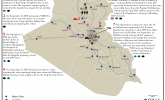
ISIS is targeting early signs of resistance in predominantly Sunni areas in northern Diyala and western Kirkuk, an area with strong tribal presence and historic presence of ISIS competitors like JRTN and Ansar al-Islam.

The assassination of Hassan Aboud, the leader of hardline Salafist Ahrar al-Sham and a former associate of al-Qaeda representative Abu Khalid al-Suri, is likely to have major repercussions for the capacity of rebels to coordinate their efforts across fronts.
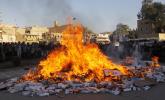
PREPARATION: ISIS was setting the conditions for uncontested rule of Raqqa since the summer of 2013, when it detonated VBIEDs against rebel headquarters, kidnapped rebel commanders, and detained civilian activists. In Mosul, ISIS undermined government institutions with large scale racketeering operations and carried out targeted assassinations against key civilian and military leaders. By the time ISIS took full military control of Raqqa in January 2014 and Mosul in June 2014, an organized opposition to ISIS did not exist.
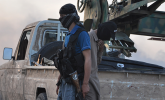
The Islamic State poses a grave danger to the United States and its allies in the Middle East and around the world. Reports that it is not currently planning an attack against the American homeland are little comfort. Its location, the resources it controls, the skill and determination of its leaders and fighters, and its demonstrated lethality distinguish it from other al-Qaeda-like groups. Its ability to offer safe-haven and support to terrorists planning attacks against us is beyond any terrorist threat we have ever seen.

The Islamic State poses a grave danger to the United States and its allies in the Middle East and around the world. Reports that it is not currently planning an attack against the American homeland are little comfort. Its location, the resources it controls, the skill and determination of its leaders and fighters, and its demonstrated lethality distinguish it from other al-Qaeda-like groups. Its ability to offer safe-haven and support to terrorists planning attacks against us is beyond any terrorist threat we have ever seen.
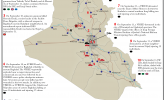
ISIS continues to test the security measures of the Iraqi Security Forces in Southern Iraq.
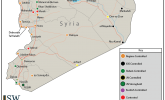
Control of the urban terrain in Syria is parceled among a number of armed groups, including the Syrian regime, opposition groups including Jabhat al-Nusra (JN), and the Islamic State of Iraq and al-Sham (ISIS).
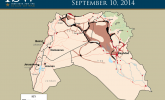
ISW has updated its ISIS Sanctuary map in advance of President Obama’s speech on a strategy to confront ISIS. This map, covering both Iraq and Syria, shows the extent of ISIS zones of control, attack, and support throughout both countries.